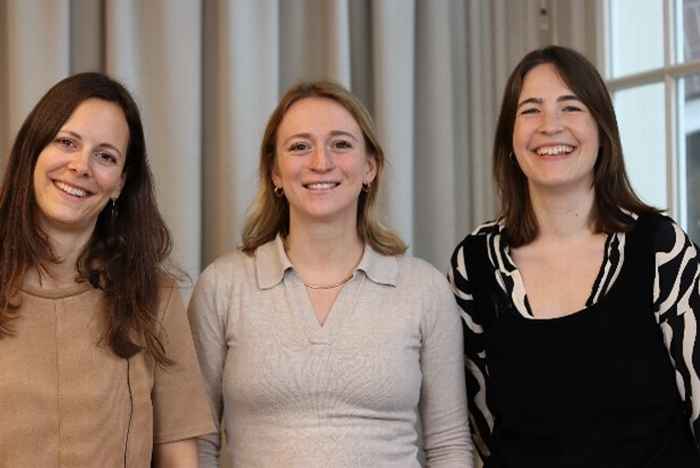Answering questions about mental health: Which approach to take?
Blog by Alumni Fellows Jorien Treur, Margot van de Weijer, Robyn Wootton
17 June 2024
All three of us (Jorien Treur, Robyn Wootton, Margot van de Weijer) come from a field called “genetic epidemiology”, in which we focus on how specific genetic and environmental factors (and the interaction between them) contribute to health and behaviour. We came to the fellowship aware of the different biases and limitations inherent to methods used in our field, and were interested in how we could combine different methods in a way that helps us answer causal questions, a process called triangulation.
When our fellowship began, we soon started having conversations with other fellows and researchers at IAS. Many of these researchers examine mental health from a complexity perspective, in which there is no specific focus on single causative associations between cause and outcome, but where complex, multifaceted models or networks are employed. It was extremely interesting to immerse ourselves in the complexity field, but it also brought up a whole new set of questions, such as when it is appropriate to study individual, causal risk factors in relation to (mental) health, or when this leads to oversimplification. And, important to our research question, how do these complexity approaches relate to other methods, and how can this be integrated in the triangulation framework we were working on?

In an effort to answer these questions, we organized an expert meeting aimed to “gather insights on causality and triangulation from a diverse group of experts, and to improve causal inference for mental health”. We invited experts from a wide range of fields, including genetic epidemiology, complexity/network science, philosophy, and economics, and spent a full day exploring the similarities and differences in our perspectives, and how we may combine these different approaches to improve triangulation.
This expert meeting was one of the key highlights of our fellowship, as it presented us with an opportunity to bring together many different experts with varying opinions who would otherwise be unlikely to meet and engage in discussions. Based on the exciting discussions that took place that day, we are currently working on an opinion piece in which we explore (and contrast) how complexity science and triangulation approaches propose to advance the field of mental health research. In addition to this opinion piece, we hope that these new connections with colleagues across different fields will lead to inspiring future collaborations.
Our time at IAS has truly been transformative, as it has (re-)opened our eyes to the many different perspectives one can take in mental health research. Take as an example the study of major depressive disorder, its causes and its consequences. There are many different perspectives one can take when studying this topic (such as a complexity approach or a (genetic) epidemiological approach), and while these perspectives are not necessarily mutually exclusive, we are strongly guided by the beliefs of those fields and examine results in light of our own theoretical framework.
While we set out to compare how one can combine different types of methods for causal inference, our fellowship at IAS has brought us to think more about how shifting perspectives from one discipline/theoretical framework to another impacts our research. This is certainly not a new idea in science, but our tendency to work within one discipline means we slowly become less and less acquainted with other viewpoints. We would like to thank the IAS for providing us with the opportunity to work in such a multidisciplinary environment, and hope to be part of this network for a much longer time!